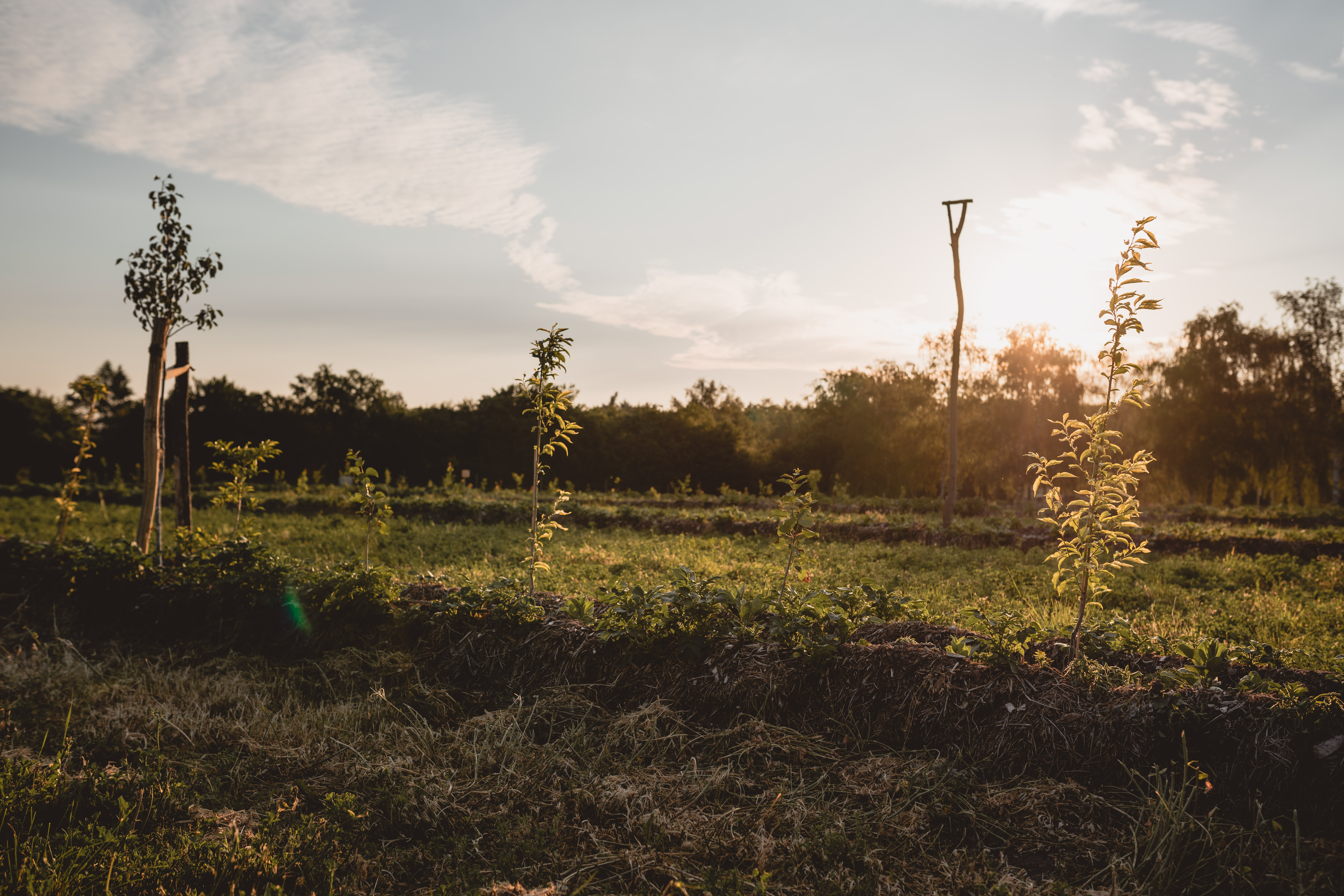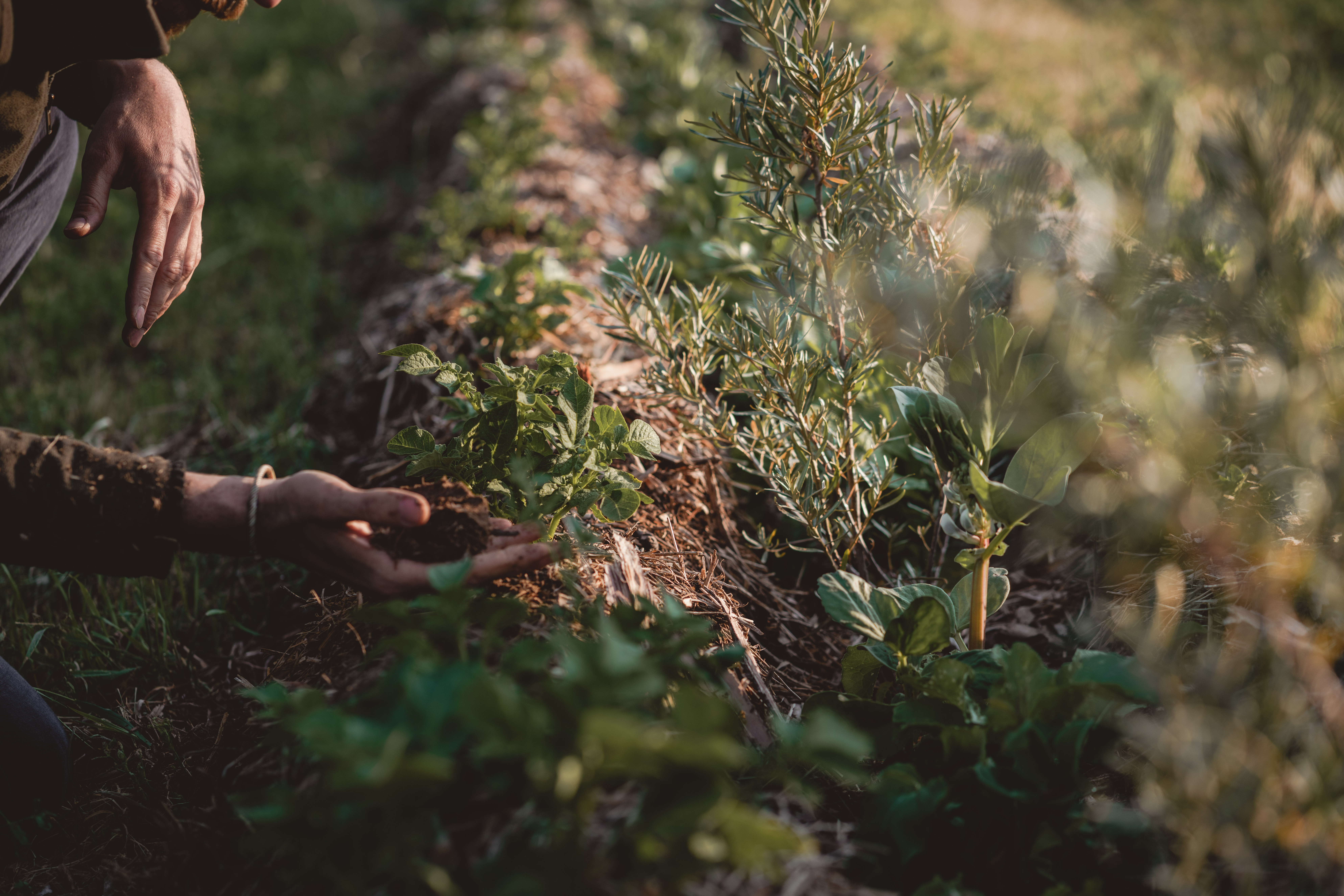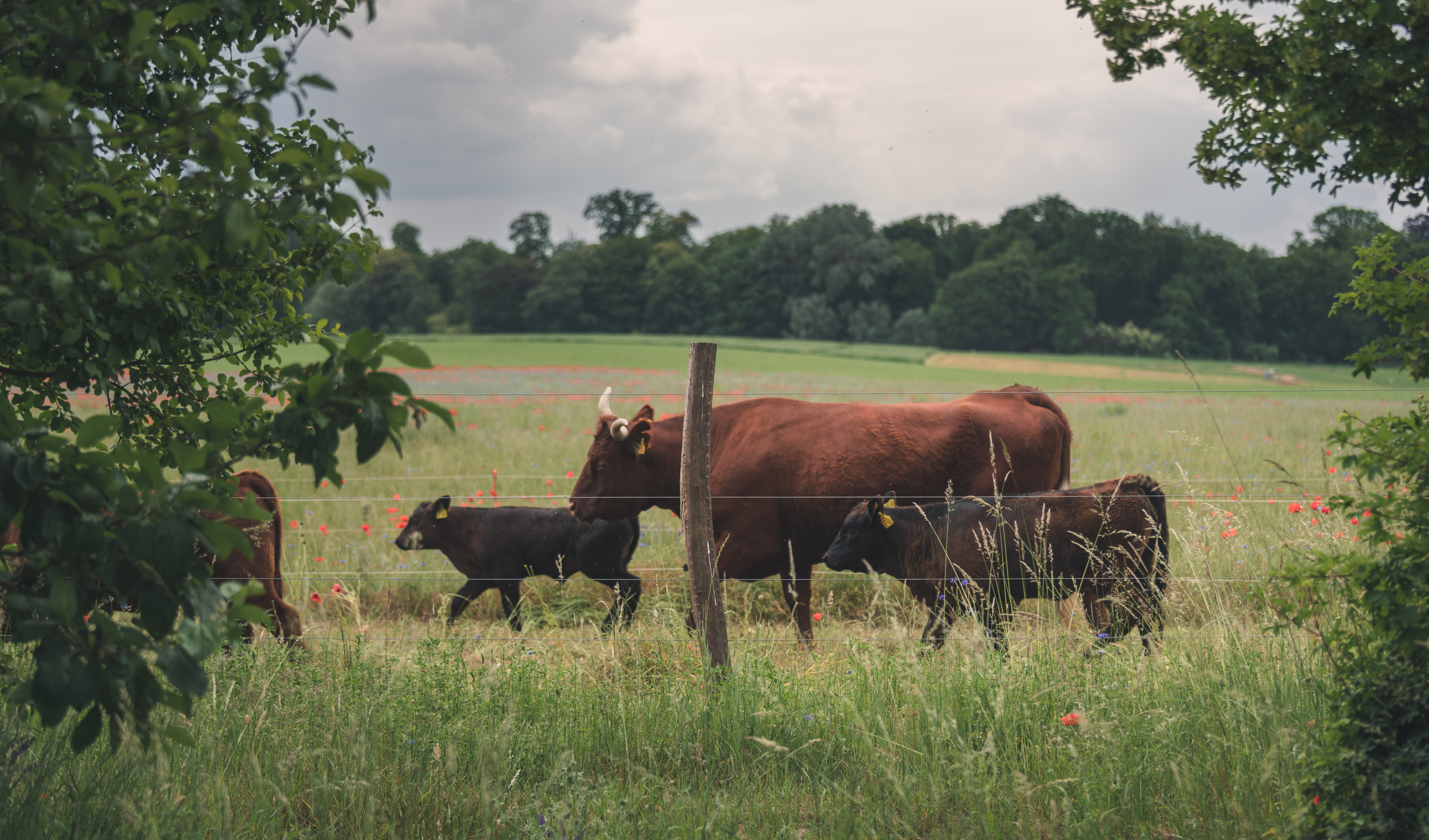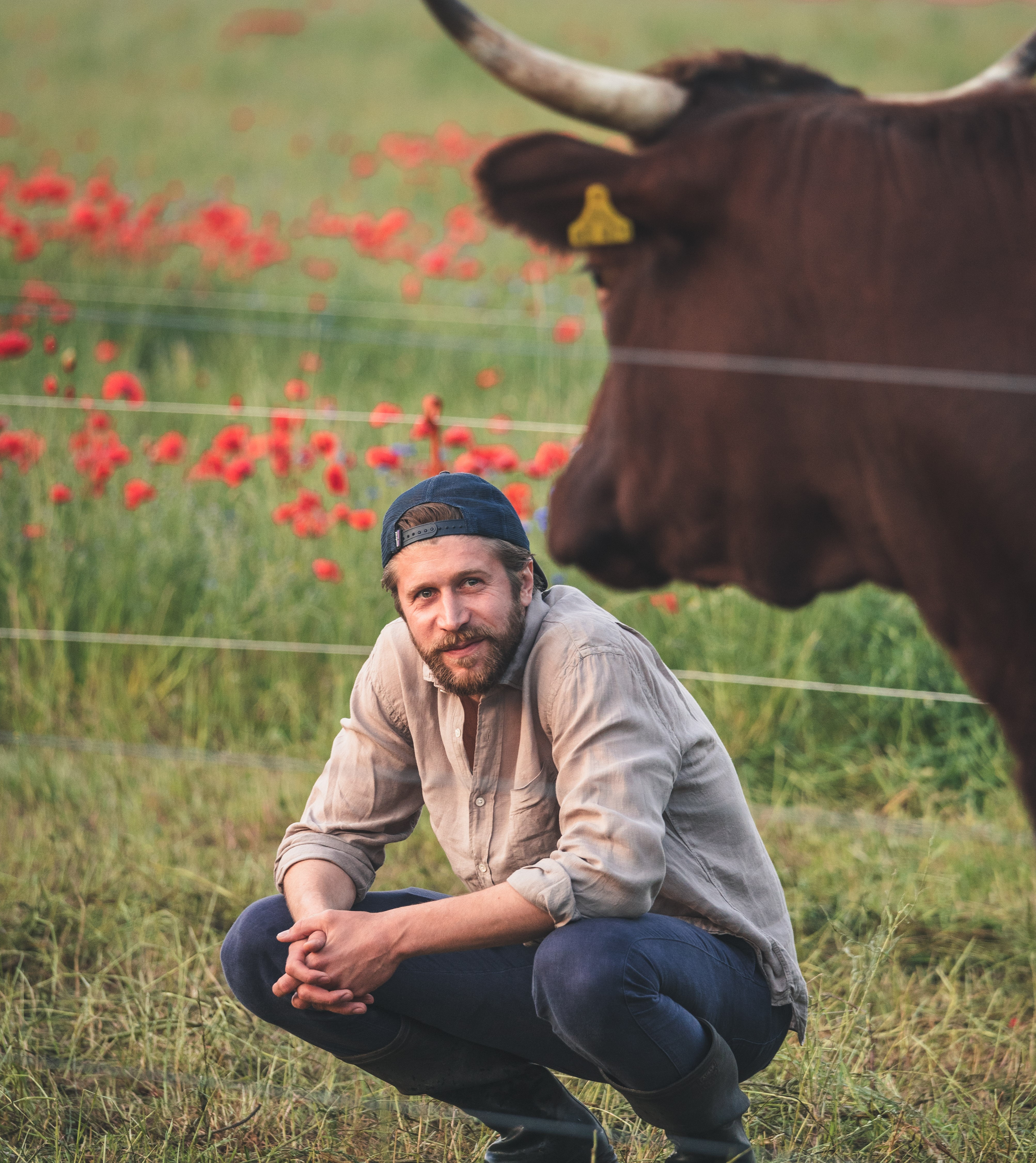FINCK STIFTUNG
Finck Stiftung gGmbH tests and develops regenerative, multi-functional forms of land use to find solutions for food systems that are threatened as never before by climate change, degraded soils, the loss of biodiversity and species diversity, and the loss of man's relationship with nature.
AVINA supports the Finck Foundation in the scientific monitoring of its activities to make the application of regenerative agriculture more tangible and measurable.
Finck Stiftung wants to find solutions for the future of agriculture under ever-increasing unpredictability. The executive director of the Finck Stiftung, Benedikt Bösel, talks to us about lost knowledge, man's relationship with nature and cellular agriculture.
Please describe the project in 5 sentences or less.
We test and develop multifunctional, regenerative land use concepts to create forms of agriculture that utilise the ecosystem to produce food, keep soils healthy, store carbon and increase biodiversity. We want to collect these processes, data, values and experiences and make them available as open source. At the same time, we want to enable interested people to participate in order to communicate the value of agriculture as a solution to the greatest problems of our time.

How is the collaboration with AVINA of particular value to you?
AVINA understands visions and works with the understanding that ecological and human values and needs must be the drivers of the food systems of the future.
To what extent do you think regenerative agriculture is compatible with our current economic mindset?
In my previous career in finance and restructuring, I experienced the 2008 financial crisis at close quarters. Even then, hardly anyone believed that the financial system was so fragile. Today, I am experiencing a similar sentiment in relation to our way of farming and the overshooting of planetary boundaries, and the economic situation for many farmers is problematic as subsidies are given out in a way that contradicts sustainable agriculture. In addition, farmers are trapped in a system that makes changes in farming almost impossible. At the same time, it is becoming increasingly obvious that "business as usual" is no longer possible. Regenerative agriculture enables a sustainable increase in profitability through the intelligent combination of soil, plants, animals and people.

In connection with the problems in agriculture today, there is often talk of lost knowledge. How can this knowledge be recovered and how can it be implemented in today's world?
Lost knowledge requires a systematic re-evaluation of the relationship between humans and the land. We need to understand that our ability to grow food is based on a reciprocal relationship that must work in harmony with nature. If we begin to think and act in this way, we can use innovation and technology to map the complexity of ecosystems and do better justice to nature.
Your project involves a lot of experimentation and research. What is the typical learning process for you and the project?
The start, i.e. the preparation and planting, is 5% of the work. The remaining 95% consists of precisely following and documenting the development of the individual projects in order to continuously learn from observations and mistakes. So starting is the first step in the learning process without it ending. Our aim is to record and evaluate these processes and make our experiences visible and usable for others.

In recent decades, there has been a decoupling of humans from nature, especially in the soil. How can we reduce this distance and restore the relationship?
Our aim must be to make people realise that their purchasing decisions determine the way we treat our soil.Personal contact with people and full transparency on our farms is the best way to bring people closer to the vital importance of soil. We try to involve people in our work through farm tours and the media. We should not forget educational programmes that bring young people closer to the fascinating work in agriculture.
What do you think of cellular agriculture as an anthropogenic contrast to regenerative agriculture?
The increasing complexity of our lives requires a wide variety of solutions in the most diverse contexts. Both methods have the potential to enable improvements in the way we use our resources. Both need to be applied in the right place and in the right way. Although the approaches are completely different, they aim to achieve a similar end result. It is about using resources wisely and ensuring a food supply that is not at the expense of the environment.
Lost knowledge requires a systematic re-evaluation of the relationship between humans and the land. We need to understand that our ability to grow food is based on a reciprocal relationship that must work in harmony with nature.
What role could cellular agriculture play in the future and how could it be integrated into regenerative agriculture?
The technology can be extended to many areas of life and materials and can lead to significant improvements in process steps. At the same time, it has the potential to change thought processes.
